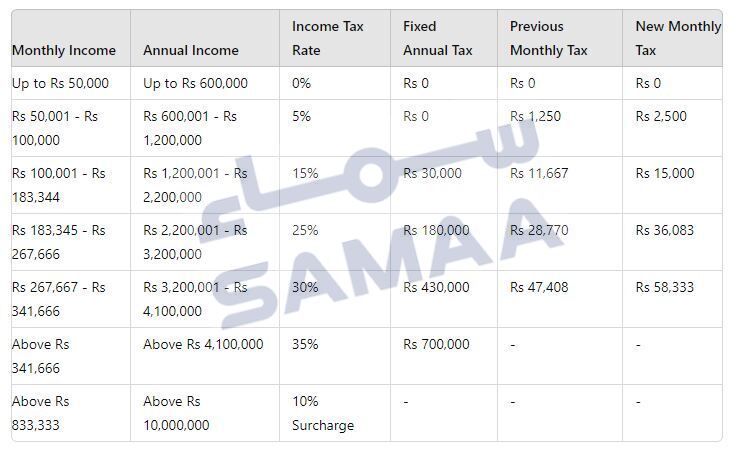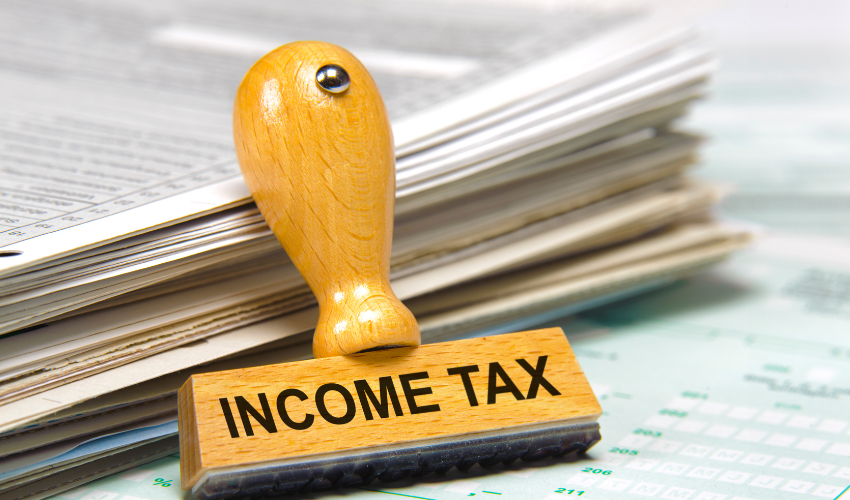The new fiscal year has brought forth significant changes in taxation for the salaried class as outlined in the Finance Bill 2024, which has come into effect from July 1.
These changes, aimed at increasing revenue, introduce varied tax rates and fixed taxes based on income brackets.
Under the new tax regime:
- Individuals earning up to Rs50,000 per month or Rs600,000 per year are exempt from income tax.
- Monthly incomes up to Rs100,000 face a 5% income tax rate, applying to annual incomes from Rs600,000 to Rs1.2 million. This bracket will see their monthly tax increase to Rs2,500 from the previous Rs1,250.
- Those earning between Rs1.2 million and Rs2.2 million annually will face a 15% income tax rate along with a fixed tax of Rs30,000 annually.
- Individuals earning Rs183,344 per month will now pay 15% tax, or a monthly tax of Rs15,000, up from Rs11,667.
- Those earning between Rs2.2 million and Rs3.2 million annually will be taxed at a rate of 25%, with an additional fixed tax of Rs180,000 annually.
- Individuals earning Rs267,667 per month will pay 25% tax, or a monthly tax of Rs36,083, up from Rs28,770.
- For annual incomes ranging from Rs3.2 million to Rs4.1 million, a 30% income tax rate is applicable along with a fixed tax of Rs430,000 annually.
- Individuals earning Rs341,667 per month will now pay a monthly 30% tax of Rs58,333, up from Rs47,408.
- A maximum tax rate of 35% is applied to salaries above Rs4.1 million per annum, coupled with a fixed tax of Rs700,000 annually.
- Individuals and Associations of Persons (AOPs) are subject to a 10% surcharge on income exceeding Rs10 million.

These new tax measures are expected to significantly impact the disposable income of the salaried class, potentially leading to higher tax burdens for higher-income earners.
Also Read: New tax rates on vehicles from July 1, 2024
The government aims to enhance revenue collection through these revised tax rates, part of broader fiscal policies outlined in the Finance Bill 2024.
The Finance Bill 2024, which introduces new tax rates on locally manufactured vehicles among many others, comes into effect on Monday.
This change marks a shift from a fixed tax rate to a value-based tax system, as outlined in the Finance Bill. Under the new tax regime, the tax on vehicles is no longer a fixed amount but varies according to the vehicle's value.


























